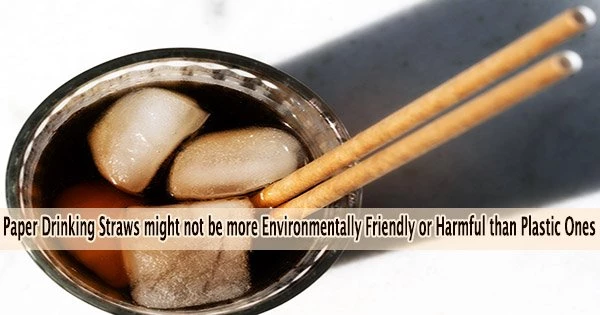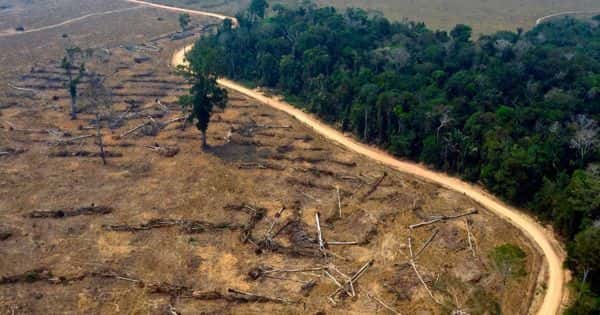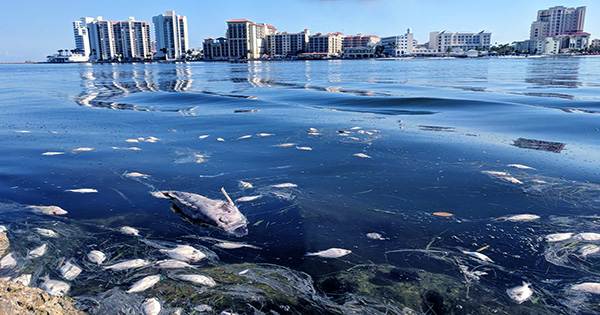According to a recent study, “eco-friendly” paper drinking straws contain corrosive and potentially harmful substances.
Researchers from Belgium examined 39 different brands of straws for the class of synthetic compounds known as poly- and perfluoroalkyl substances (PFAS), which was the first analysis of its kind in Europe and the only one in the world.
The majority of the straws examined had PFAS, which were most frequently identified in paper and bamboo straws, according to a study that was published in the peer-reviewed journal Food Additives and Contaminants.
PFAS are used to make everyday products, from outdoor clothing to non-stick pans, resistant to water, heat and stains. They are, however, potentially harmful to people, wildlife and the environment.
They degrade over time very slowly and can linger in the environment for tens of thousands of years; this characteristic has earned them the moniker “forever chemicals.”
Numerous health issues have been linked to them, such as a decreased reaction to vaccinations, low birth weight, thyroid illness, elevated cholesterol levels, liver damage, kidney cancer, and testicular cancer.
“Straws made from plant-based materials, such as paper and bamboo, are often advertised as being more sustainable and eco-friendly than those made from plastic,” says researcher Dr. Thimo Groffen, an environmental scientist at the University of Antwerp, who is involved in this study. “However, the presence of PFAS in these straws means that’s not necessarily true.”
Drinking straws are among the single-use plastic devices that have been outlawed in an increasing number of nations, including the UK and Belgium. In their place, plant-based alternatives have gained popularity.
A recent study found PFAS in plant-based drinking straws in the US. Dr Groffen and colleagues wanted to find out if the same was true of those on sale in Belgium.
The research team bought 39 different types of drinking straws in five distinct materials paper, bamboo, glass, stainless steel, and plastic to further investigate this.
Straws made from plant-based materials, such as paper and bamboo, are often advertised as being more sustainable and eco-friendly than those made from plastic. However, the presence of PFAS in these straws means that’s not necessarily true.
Dr. Thimo Groffen
The straws underwent two rounds of PFAS testing after being mostly purchased from stores, supermarkets, and fast-food restaurants.
The majority of the brands (27/39, 69%) contained PFAS, with 18 different PFAS detected in total.
The paper straws were most likely to contain PFAS, with the chemicals detected in 18/20 (90%) of the brands tested. PFAS were also detected in 4/5 (80%) brands of bamboo straw, 3/4 (75%) of the plastic straw brands and 2/5 (40%) brands of glass straw. They were not detected in any of the five types of steel straw tested.
The most commonly found PFAS, perfluorooctanoic acid (PFOA), has been banned globally since 2020.
Also detected were trifluoroacetic acid (TFA) and trifluoromethanesulfonic acid (TFMS), “ultra-short chain” PFAS which are highly water soluble and so might leach out of straws into drinks.
Given that most people only sometimes use straws, the PFAS amounts were modest and only minimally harmful to human health. PFAS concentrations, however, can linger in the body for many years and increase over time.
“Small amounts of PFAS, while not harmful in themselves, can add to the chemical load already present in the body,” says Dr. Groffen.
It is unknown whether the PFAS were brought about by contamination or added to the straws by the producers as a waterproofing agent. The water used during manufacturing as well as the soil the plant-based components were produced in are potential sources of contamination.
However, the presence of the chemicals in almost every brand of paper straw means it is likely that it was, in some cases, being used as a water-repellent coating, say the researchers.
The study’s other limitations include not looking at whether the PFAS would leach out of the straws into liquids.
Dr. Groffen concludes: “The presence of PFAS in paper and bamboo straws shows they are not necessarily biodegradable.”
“We did not detect any PFAS in stainless steel straws, so I would advise consumers to use this type of straw or just avoid using straws at all.”
















